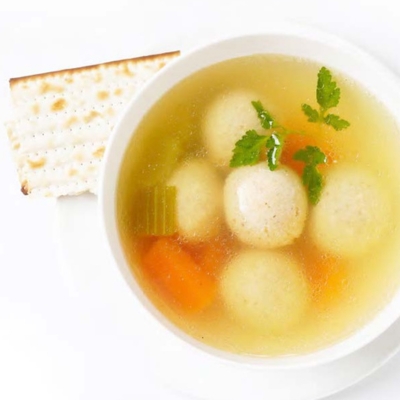“Beyond the Synagogue”: Jewishness in Falsettos
In her recent book, Beyond the Synagogue: Nostalgia as Jewish Religious Practice, Rachel B. Gross counters the “arguments of worried pundits” that American Judaism is under threat. Rates of intermarriage and the decline of synagogue memberships lead some to believe that American Judaism is shrinking but in Gross’s eyes, the opposite is true: American Judaism is expanding.

To Gross, if we can reconceptualize our understanding of Jewish religious practice—unlinking it from the religious institutions with which it has long been associated—we’ll see that American Judaism is actually “evolving and flourishing.” Gross takes us to historic synagogues, to delicatessens, and to museums on her journey to find new, American-Jewish religious sites that fall outside the conventional parameters of what has generally been considered “religious.” So, is Falsettos, in this vein, a “religious” play? I would contend that it is.
In Falsettos, a bar mitzvah serves as the catalyst for a redefinition of Jewish religious practice in Gross’s terms. Trina and Marvin, a divorced couple, insist that their son Jason go through the traditional religious coming-of-age ritual against the backdrop of some very non-traditional family configurations. Marvin has left Trina for his lover Whizzer, who subsequently is felled by AIDS. Jason’s psychiatrist Mendel marries Trina, and Dr. Charlotte and her partner Cordelia, Marvin’s neighbors, ply this complex extended family with food to support them through Whizzer’s death. Although the bar mitzvah is the central event organizing Falsettos, it is the food wending its way through the play that signals its religious undertones.
Cordelia is the cook at the heart of the play and she enters, singing: “Here’s dietitic knishes, gefilte fishes. Food that’s from the heart. So take a bite and see if all of your friends agree it’s good.”
Food has become the glue that ties the dysfunctional, loving, group together. The whole cast sings: “Yummy, yummy, yummy, yummy, yummy, Yum…There’ll be food like never before, what a day to remember! This is the year, is the year, is the year of Jason’s bar mitzvah.” The play is punctuated by queries such as the following: “Tell me how it tastes. Tell me if it’s good. Tell me, dear, if you’d like seconds.” At one point, Cordelia appears in the hospital where Marvin is visiting Whizzer, carrying a tray of food, and she says: “Hello. Rugelach, gefilte fish. It’s so good you’d think it’s Italian. Also a soup made from chicken that, though unexotic, is antibiotic. Oh, I’m up to my ass in a kosher morass. For aches and croup, try my chicken soup.” Marvin and Cordelia turn to Whizzer and say, “Today you seem to be on the way to recovery. Oh, Whizzer, I want to applaud. It’s days like this we almost believe in God. Days like this we almost believe in—” and Cordelia interjects “Gefilte fish” while Marvin says, “God.” Cordelia returns: “Canadelach.”

Gefilte fish, chicken soup, Canadelach [matzah balls], and God become one and the same in this rousing homage to Jewishness in America during the AIDS epidemic, a religious community defined not by its institutions, but by its commitment to change and to food.
Jason, skeptical (as most bar mitzvah boys are) about the meaning of this ritual he is being forced to undergo, decides at the last moment to move the bar mitzvah to Whizzer’s bedside in the hospital, bringing the family and the food and the blessings and the love along with him. He redefines the bar mitzvah, the age-old Jewish ceremony within the context of a new blending of communities—the Jewish community with the gay community, the American community with the East-European one implied in the selection of culinary delicacies invoked throughout the play. Religious studies scholar Kathryn Lofton says, “Whatever else religion might be, it is a way of describing structures by which we are bound and connected to one another.” Falsettos showcases those connections with a satisfying serving of delicious, Jewish, fare.
SHEILA E. JELEN, PhD, is a Professor of Religion, Literature, and Visual Culture and a Professor of the History of Judaism at the University of Chicago. Professor Jelen formerly taught at the University of Kentucky, Lexington where she was the Zantker Professor of Jewish Literature, Culture, and History and Director of the Program in Jewish Studies. She received her PhD from the University of California, Berkeley in 2001 and previously taught in the English Department and the Jewish Studies Program at the University of Maryland, College Park from 2001 through 2018.